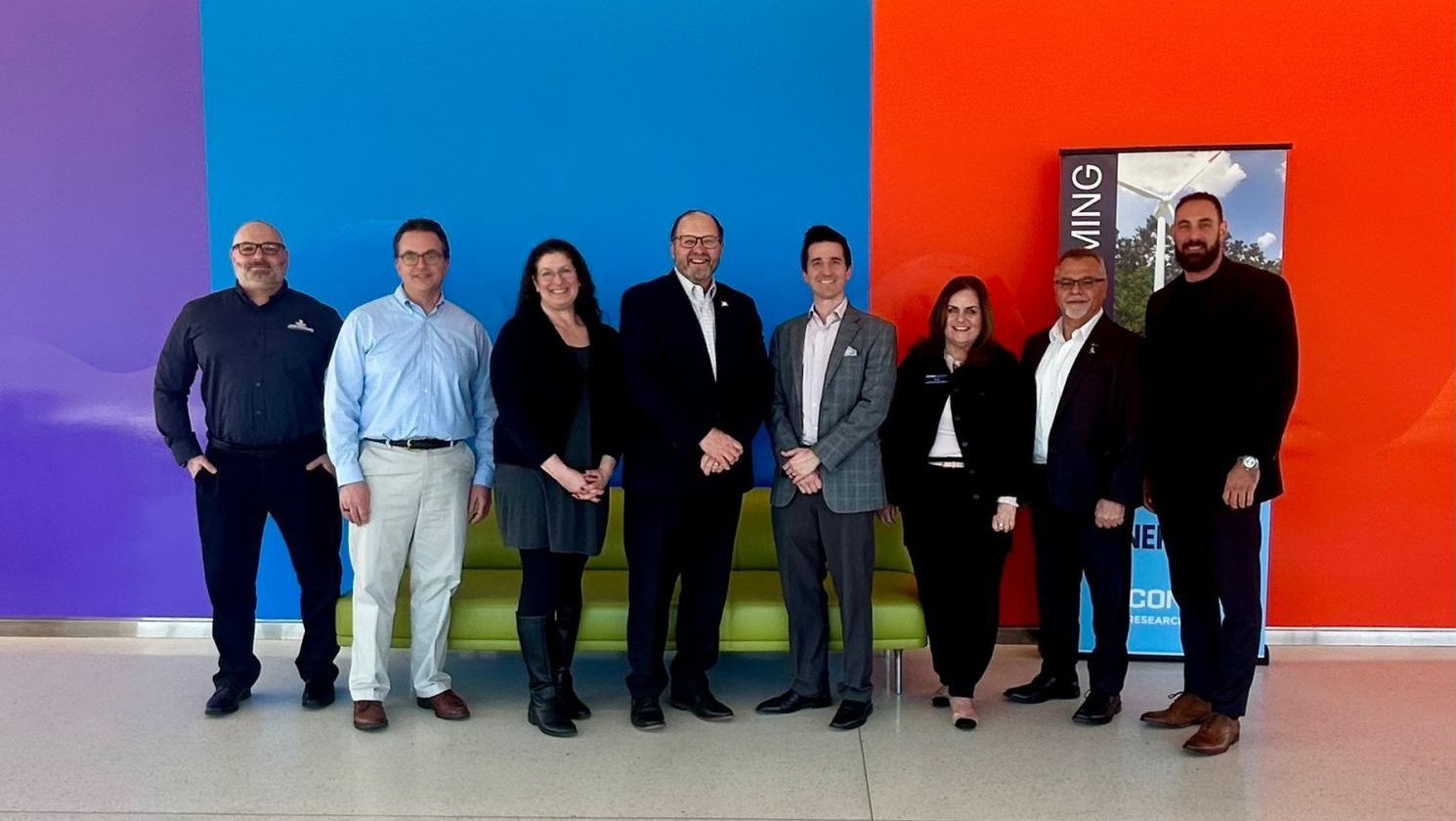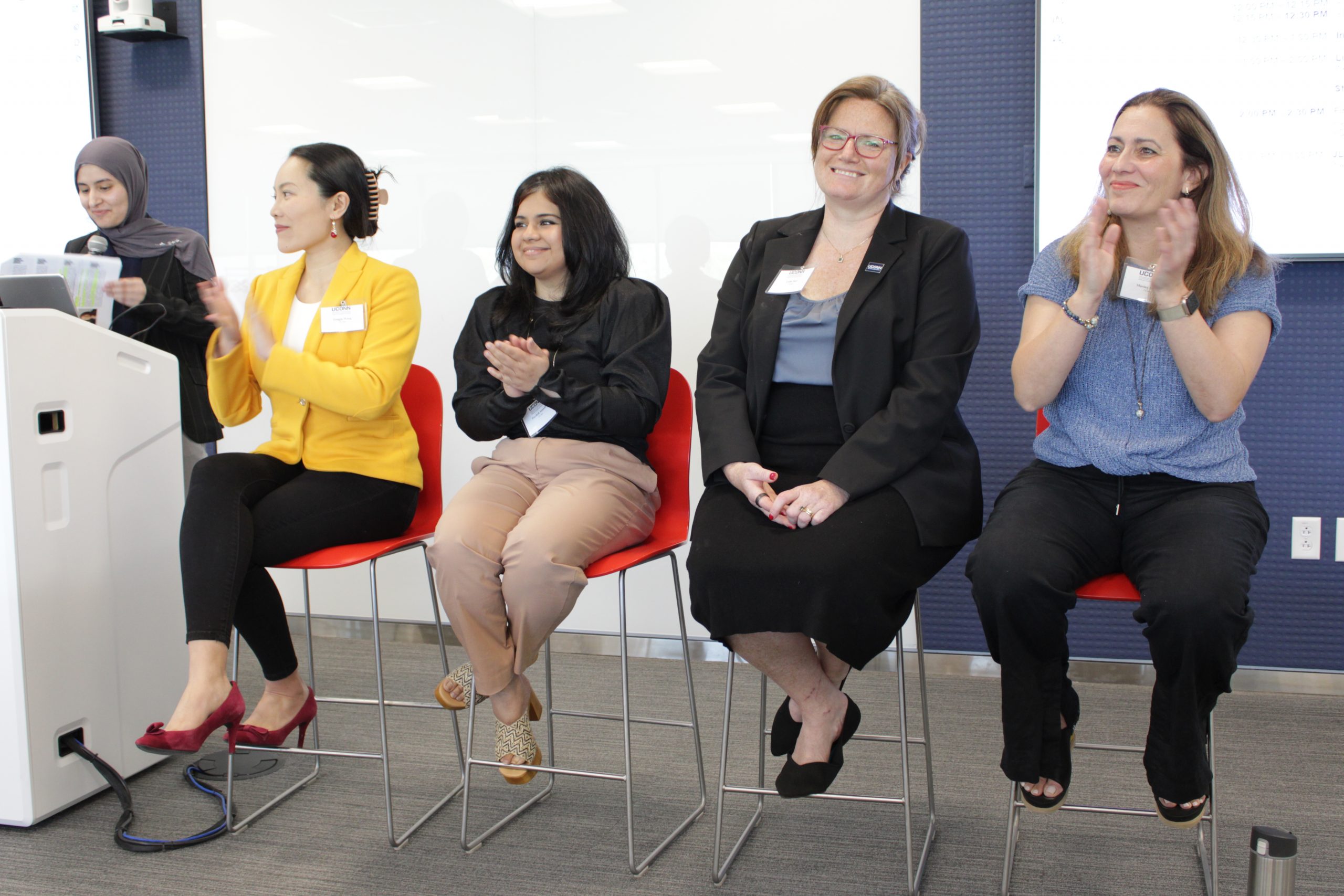Author: Melanie Noble
UConn Ranked 8th Most Sustainable University in the World
Eversource Energy Center Faculty Receive Prestigious NSF CAREER Awards
How to Partner With Industry (by Really Trying)
Leadership Horizons Workshop Empowers UConn Engineering Grad Students
UConn Tech Park was pleased to host the Leadership Horizons: Exploring Paths Beyond Graduation leadership workshop from the UConn Engineering – John Lof Leadership Academy on May 13. The workshop was designed to educate graduate students from the UConn College of Engineering about leadership opportunities in various career sectors (industry, academia, and entrepreneurship).
Attendees heard from guest speakers from both industry and academia, who discussed the opportunities and hurdles students may face as they move forward in their careers. Thank you to all speakers for your invaluable expertise and guidance!
Nursing and Engineering Innovation Forum Highlights Interdisciplinary Work
Supporting Small Businesses in CT – Manufacturing Leadership Roundtables at UConn Tech Park
 UConn Tech Park’s collaborations with the State of Connecticut and Chief Manufacturing Officer Paul Lavoie aim to introduce Tech Park resources to Connecticut’s small manufacturers. “Supporting CT’s small businesses is a key mission for UConn Tech Park,” says Tech Park business development manager Mike DiDonato. “Through outreach like this, we connect with businesses that can leverage Tech Park resources to innovate new products and improve existing ones. We want businesses to know that Tech Park can help them stay competitive. UConn is here to support you.”
UConn Tech Park’s collaborations with the State of Connecticut and Chief Manufacturing Officer Paul Lavoie aim to introduce Tech Park resources to Connecticut’s small manufacturers. “Supporting CT’s small businesses is a key mission for UConn Tech Park,” says Tech Park business development manager Mike DiDonato. “Through outreach like this, we connect with businesses that can leverage Tech Park resources to innovate new products and improve existing ones. We want businesses to know that Tech Park can help them stay competitive. UConn is here to support you.”
That objective was set in motion on March 20 with the kickoff of the 2025 Manufacturing Leadership Roundtable series at UConn Tech Park. This ongoing, invitation-only series brings together C-level leaders from manufacturing companies across the state to network, share challenges, and explore how UConn’s research and innovation capabilities can support their growth.
Participating manufacturers represented a range of specialties—from aerospace and electronics to precision engineering and metal fabrication. The roundtable format allows these leaders to see firsthand how UConn can provide support in areas like advanced manufacturing, materials testing, energy management, data science, and more.
Tech Park offers:
-
Advanced manufacturing and automation services such as machining validation, 3D prototyping, and process optimization
-
Materials science support including failure analysis, microscopy, and chemical analysis
-
Energy and sustainability assessments including free energy audits and renewable integration strategies
-
Data science resources from cybersecurity assessments to AI-driven diagnostics
-
Training and consulting tailored to business needs, along with access to engineering senior design teams for small-scale projects
“Many small and mid-sized manufacturers don’t realize how accessible and practical UConn’s resources can be,” says DiDonato. “Whether you’re troubleshooting a process, validating a design, or looking to explore AI or automation, UConn Tech Park can help.”
Interested in participating in a future roundtable?
> If you are the General Manager, President, or CEO of a Connecticut manufacturing company, please reach out to Paul Lavoie. Participation is by invitation only.
Want to learn more about Tech Park support for small businesses?
> View the flyer with detailed resources and services.
> Contact Mike DiDonato, Business Development Manager, UConn Tech Park
UConn Tech Park – Powering Innovation for Connecticut’s Small Businesses.


